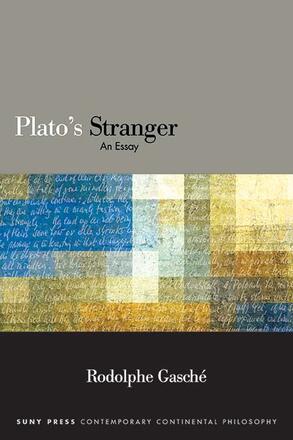
Plato's Stranger
An Essay
Alternative formats available from:
Meditation on the character of the Eleatic Stranger in Plato's late dialogues, arguing that the prominent place afforded to this foreigner—the other—represents an important philosophical and political legacy regarding the way thought, and life in the community, is understood.
Description
The dramatic introduction in two of Plato's late dialogues—the Sophist and the Statesman, both part of a trilogy that also includes the Theaetetus—of a stranger, the Eleatic Stranger, who replaces Socrates, is a consequential move, especially since it occurs in the context of decidedly new insights into the philosophical logos and life together in a community. The introduction of a radical stranger, a stranger to all native identity, has theoretical implications, and, rather than a rhetorical or merely literary device, is of the order of an argument. Plato's Stranger argues that in these late dialogues, Plato bestows on the West a philosophical and political legacy at the core of which the stranger holds a prominent place because it provides the foreigner—the other—with a previously unheard-of constitutive role in the way thinking, as well as life in community, is understood. What is to be learned from these late dialogues is that, without a constitutive relation to otherness, discursive and political life in a community—in other words, also of the way one relates to oneself—remain lacking.
Rodolphe Gasché is SUNY Distinguished Professor and Eugenio Donato Professor of Comparative Literature at the University at Buffalo, State University of New York. His many books include Storytelling: The Destruction of the Inalienable in the Age of the Holocaust, also published by SUNY Press.
Reviews
"In addition to offering solid and largely compelling interpretations of the Theaetetus, Sophist, and Statesman, Gasché presents us with an intriguing argument that both philosophy and politics, even for Plato, requires an Auseinandersetzung with 'the other' in order to ground itself and allow its movement toward its own self-flourishing. Gasché provides a fascinating and provocative argument that a xenological thinking—a philosophy of Otherness—is located within Plato's thought." — S. Montgomery Ewegen, Trinity College